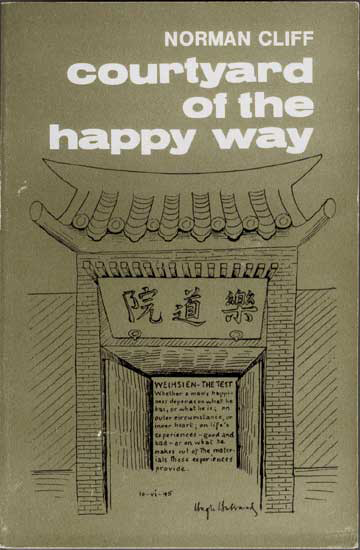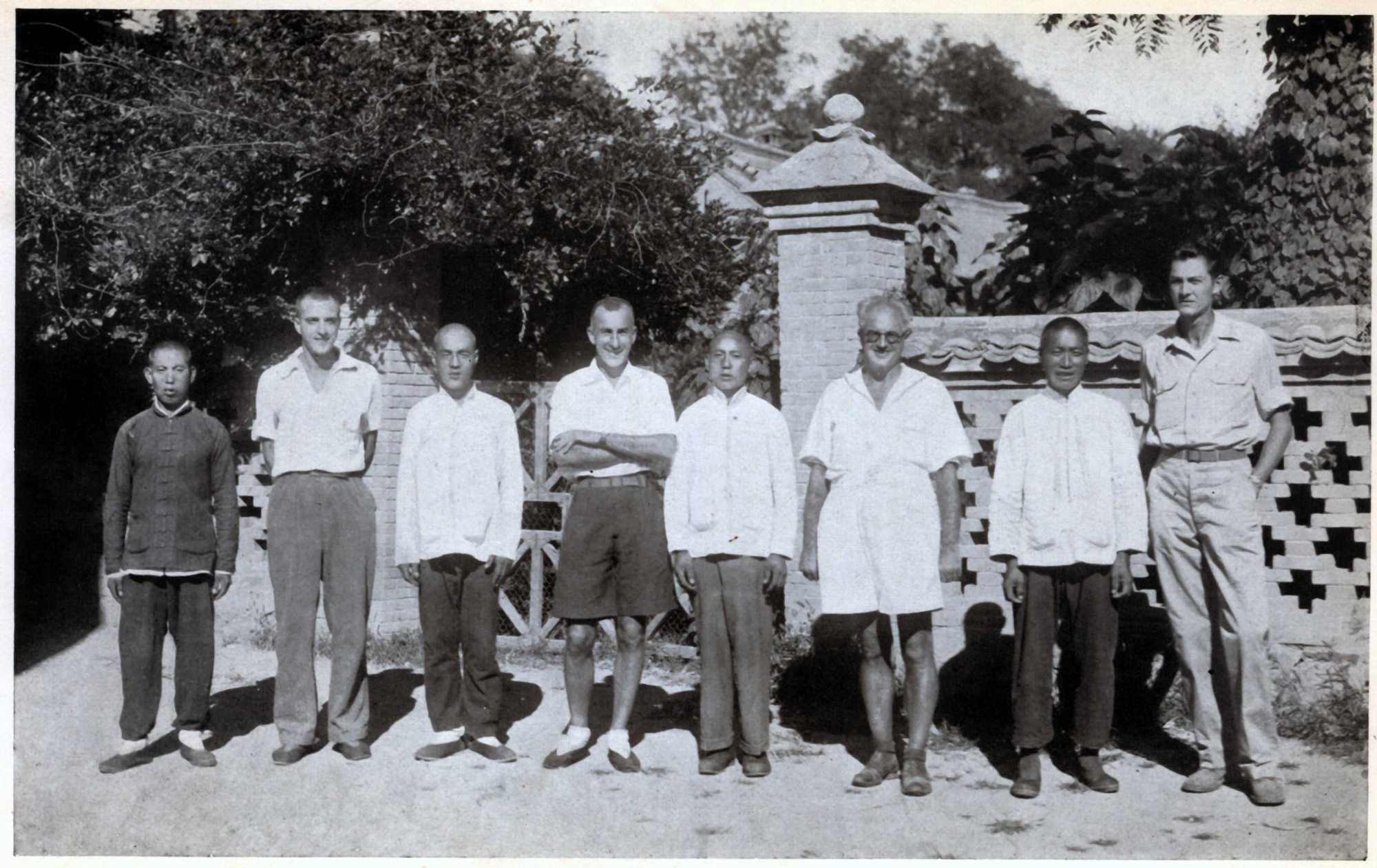
- by Norman Cliff
[Excerpt] ...
[...]
 One Saturday evening in mid-June 1944 the news spread rapidly through the camp, “Hummel and Tipton have escaped.”
One Saturday evening in mid-June 1944 the news spread rapidly through the camp, “Hummel and Tipton have escaped.”
The effect on the humdrum routine of camp life was electrifying. But after the initial excitement of such a dramatic development came a sense of apprehension, tenseness and fear.
How would the Japanese react? Would there be serious recriminations on us? Would some of our privileges be curtailed?
Roll-call that afternoon took three times the normal duration. Over the months it had become loosely organised and carelessly administered. As a roll-call warden, waiting outside the guardroom to ring a bell as a signal that the community could break up and return to work, I had noted that the figures chalked up on the blackboard in the guardroom had one day totalled 1,492 and the next day 1,518, and so on, with little effort to account for the discrepancies.
But from now on it was an exercise computed with the utmost care. The Japanese guards would count us over and over again. The roll-call period was prolonged. The Guards were gruff and their attitude one of distrust. If rows straggled crookedly, they shouted and swore.
Bit by bit details of the escape leaked out, and as we walked round and round the blocks when the day’s work was over, in our little groups we shared excitedly but discreetly what we each had gleaned during that day.
Our camp leaders had been aware of the planned escape for that Friday night, but had planned to report the two men as missing on the Saturday afternoon, to ensure that the escapees had a reasonable start on their journey.
The commandant and his twenty-five guards were furious on hearing of the escape, and immediately made plans to recapture them. Soldiers with police dogs scoured the surrounding countryside unsuccessfully.
The local press, we were told, gave a face-saving statement that seven had attempted to escape, and five had been recaptured. For two out of seven to get away was less serious than two out of two!
The nine men who shared their bachelor dormitory were arrested, placed in the church building for ten days, and subjected to prolonged interrogation. They all pleaded ignorance of any planned escape, and were released again.
I was working at the time in a shift cooking food in Kitchen I, and over the subsequent weeks the skeleton facts relating to their escape came out.
In order not to be missed in the routine of camp duties, Hummel and Tipton had taken leave from their shifts on which they had worked in Kitchen 1.
They had also moved out of their bachelor dormitories and slept outside, so as not to implicate their room mates in any way.
They had calculated that on a certain night in June there would be a full moon, suitable for their escape across the Chinese countryside.
Moreover, at a certain time this full moon would shine on the sentry’s tower and cast a dark shadow across a large area of the wall. At 9 p.m. the guards would change, and the policeman coming on duty would do a routine inspection of the area around before mounting his watchtower. It was that short changeover period that enabled the escapers to escape and for which they had waited as planned.
Two internees helped them through the two stages of electrified wires on to the field outside, where Chinese were waiting to assist in their getaway.
One of the effects of this successful escape was that the bachelors were moved from the top floor of the hospital (where they could see the open countryside and thus get ideas about escaping) to Block 23, nearer to the Japanese officers’ quarters.
The Japanese arranged for them to swap with the boys and girls of the Chefoo schools. I moved with the schools, getting a much coveted room to myself, which had just enough room for my mattress and improvised bedside table.

LiberationGroup
RETURN TO CAMP: from left to right --- -?-, Arthur Hummel, -?-, Laurie Tipton, -?-, Father Raymond deJaegher, Zhang Xihong’s father and --- Roy Tchoo.
[further reading] ...
http://www.weihsien-paintings.org/NormanCliff/Books/Courtyard/eDocPrintPro-BOOK-Courtyard-01-WEB-(pages).pdf
#








